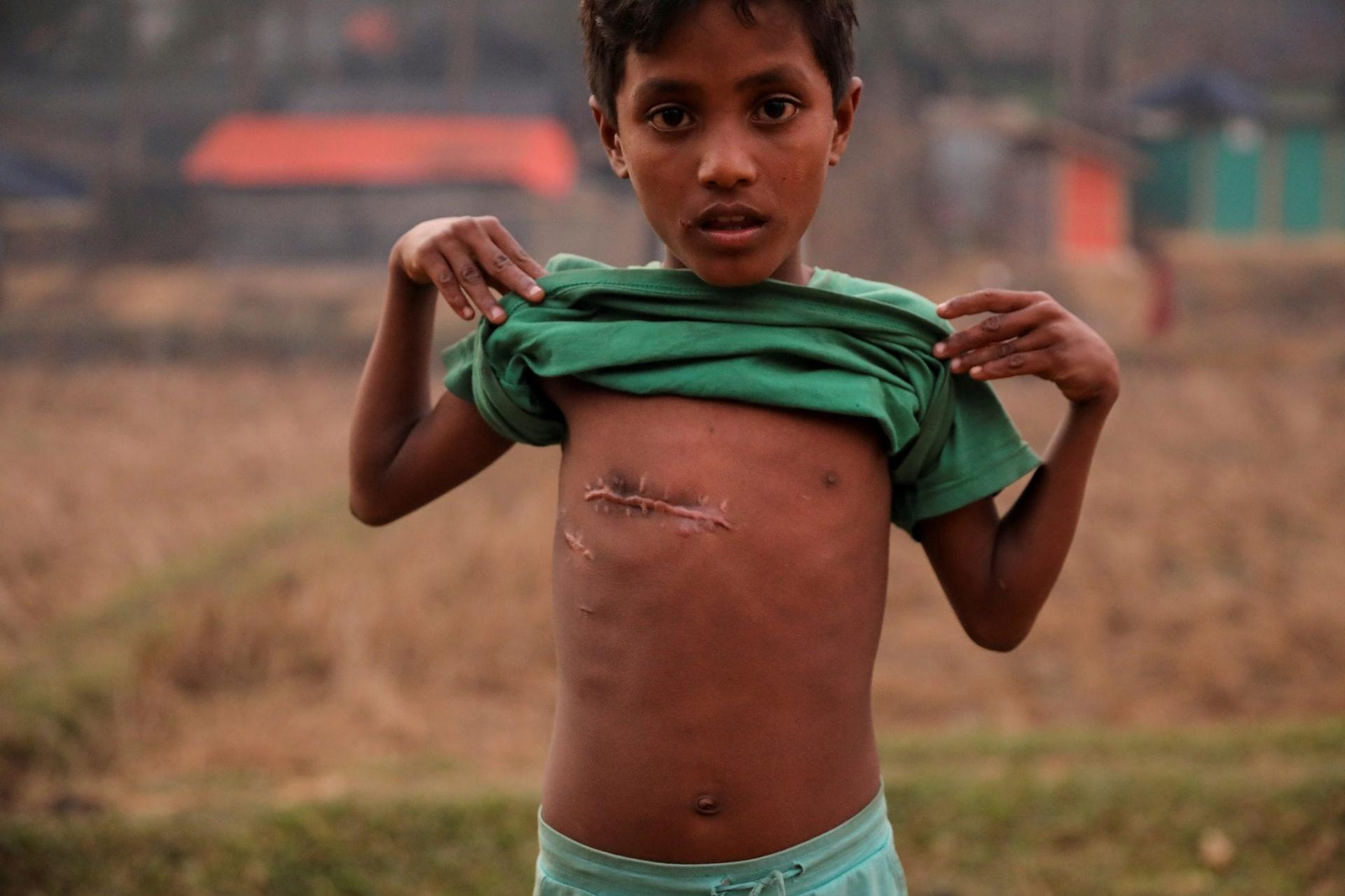COX’S BAZAR, Bangladesh — In the middle of the overcrowded Kutupalong refugee camp housing thousands of Rohingya, a small tin-roofed and brick-walled house is abuzz with about 100 children receiving a basic primary education.
It’s where they get the chance to learn English, Bengali and science.
During a break, the kids get snacks — mostly cookies and water — and have the opportunity to play, draw pictures and talk with their teachers.
For the last two months, Ruhul Amin, 7, has been a regular visitor at this child-focused center.
Amin fled to Bangladesh from Myanmar’s Rakhine state in September. Like hundreds of thousands of others, he became a refugee after Myanmar’s military launched a violent campaign against Rohingya Muslims in response to militant attacks on security checkpoints in August.
“My father was shot dead by soldiers, and for many days I hid in the forest with my mother and three siblings. We walked for four days to reach Bangladesh,” Amin told ucanews.com.
While traumatic memories are not far away, Amin has not given up on his future.
“I want to become a doctor in the future and help poor people,” he said. “I would like to stay with my family and relatives always. If they remain here, I should too, and if they go back to Myanmar, I would like to go with them.”
Amin is one of 237 youngsters enrolled in the “child-friendly space” operated by the aid group Bangladesh Rural Advancement Committee. On any given weekday, 100 to 150 students attend classes in two shifts: 8 a.m. to 1 p.m. for children 2 to 5 years old and 1 to 5 p.m. for those 6 to 13 years old.
Sabekun Nahar, 28, an English-language teacher at the center, said children initially were unwilling to come. “But now there are many coming,” he said.
“They were psychologically traumatized but we have helped them recover. Things are much better now and they seem happy to be here,” Nahar said.
Rukhsana, 8, who did not give his last name, visits a similar learning center in Balukhali refugee camp.
“Our teachers are caring and they also allow us to play with friends during breaks. In the future, I want to become a teacher and work for children,” she told ucanews.com.
Rukhsana came to Bangladesh from the Maungdaw area of Rakhine in October with her father and three siblings. She said they lost their mother while fleeing and they do not know where she is or even if she is safe.
“Sometimes, I feel sad for my mother, but I still try to listen to my teachers and learn during classes,” she said.
In the two camps, the largest of the 12 makeshift refugee settlements in Cox’s Bazar, about 1,000 child-friendly spaces are helping children, many of them orphans.
Local and international aid groups — under the supervision of the United Nations Children’s Fund, or UNICEF — run the centers.
In addition to classes, the children receive counseling and learn hygiene and life skills. They receive books, pens, coloring pencils, school bags and other educational materials.
UNICEF plans to establish up to 500 more centers within the next year to serve an estimated 200,000 child refugees.
Caritas Bangladesh also has been operating among refugees, providing food and non-food items for as many as 70,000 people.
James Gomes, Caritas Chittagong regional director, said the agency is establishing 186 centers for children with funding from Caritas Internationalis, the Catholic Church’s federation of 160 relief and development agencies, and other agencies around the world.
Overall, about 250,000 children are among an estimated 1 million Rohingya refugees living in Bangladesh, according to UNICEF. Most of them fled from their homes in Rakhine state following the latest bout of violence.
Rohingya Muslims have been in Rakhine for centuries but many in Myanmar, including the government, military, and hard-line Buddhists, consider them as recent “illegal Bengali interlopers” from Bangladesh.
In 1982, the Rohingya officially became stateless when Myanmar changed citizenship laws that excluded them. For decades, the Rohingya have sought refuge in Bangladesh in varying scales to avoid persecution by the military and Buddhist hard-liners. In Bangladesh, Rohingya are seen as unwelcome guests putting economic and social pressure on this largely impoverished, overpopulated Muslim-majority nation.













